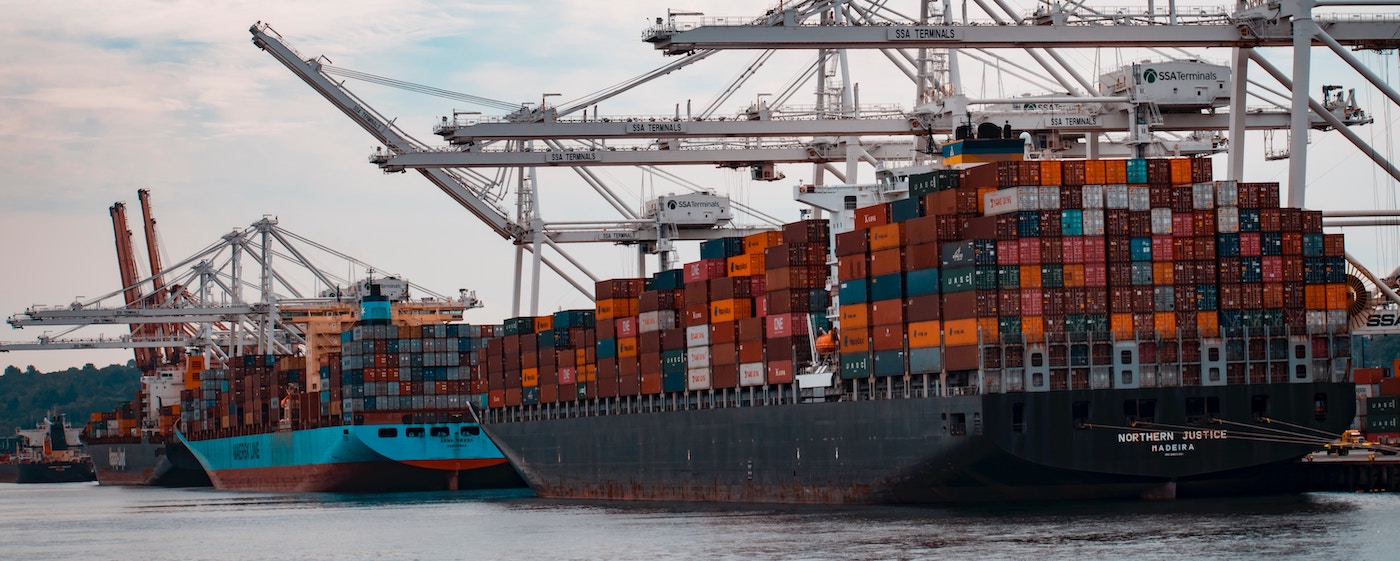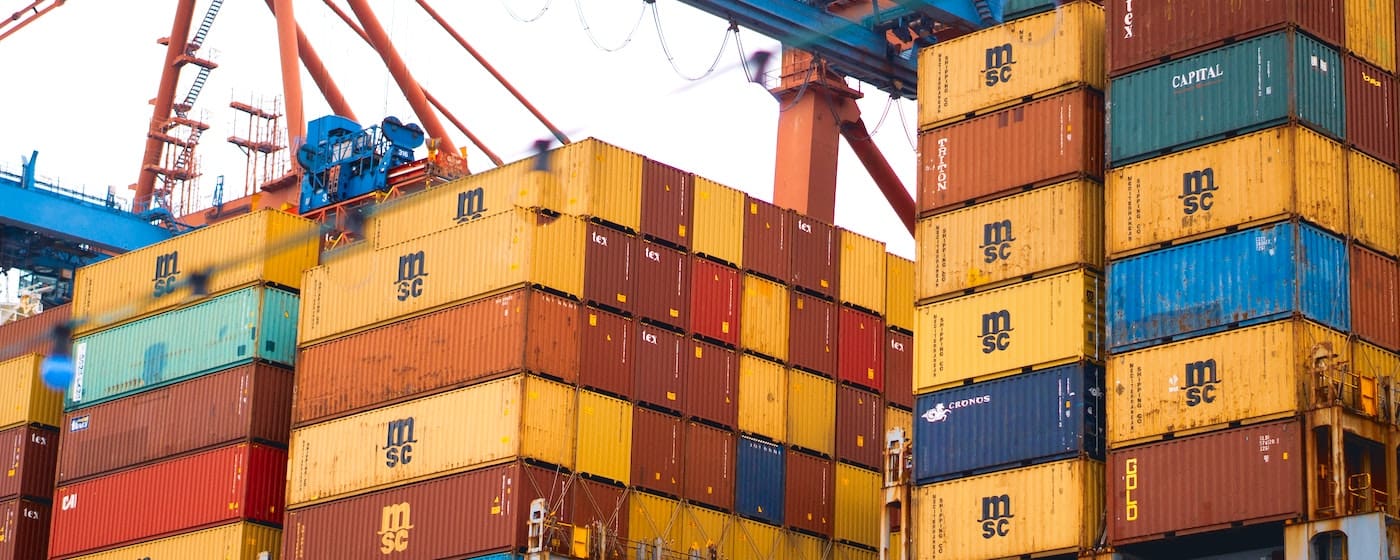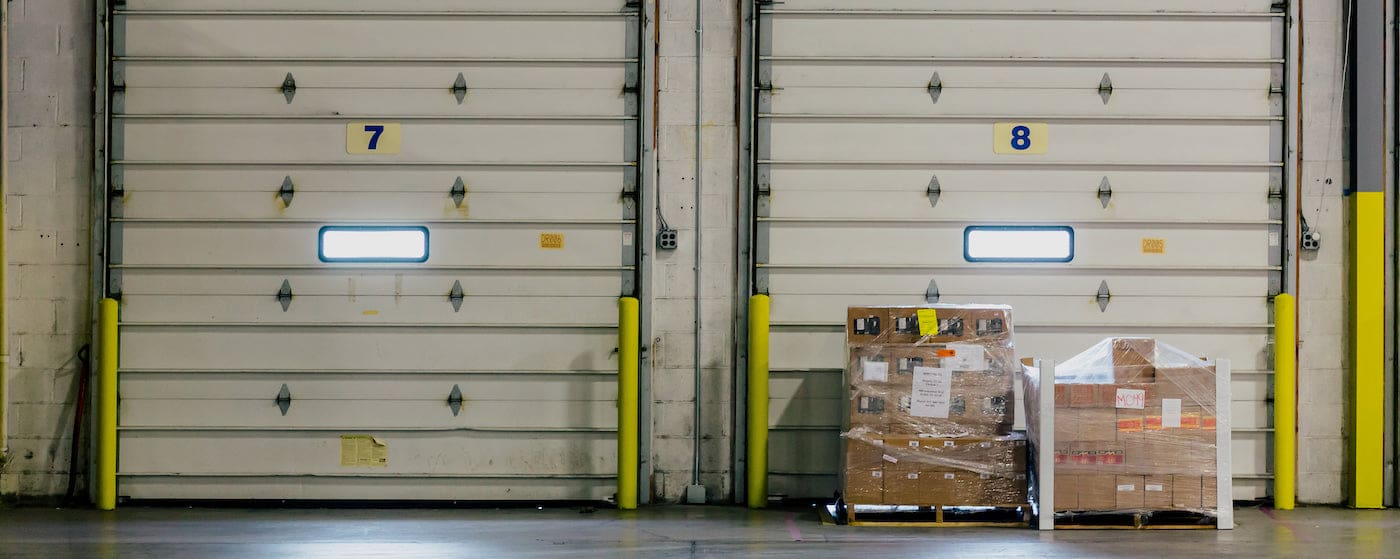Table of Contents
** Minutes
How do import taxes work in Australia?
When are taxes charged on goods imported to Australia?
What exemptions apply to import taxes in Australia?
What documentation do I need when importing to Australia?
Ecommerce has experienced significant growth in Australia in recent years, fueled by the increasing popularity of online shopping, the rise of mobile devices, and improvements in internet infrastructure.
Expanding your business to reach customers in Australia can be a smart move. But due to its remoteness, importing goods into Australia to sell can present some challenges — especially when it comes to costs.
Other than the stock and the freight, the main cost you need to consider is import taxes. The Australian Border Force (ABF) are responsible for enforcing import tax laws, and if you can’t or won’t pay the import tax, generally they will seize and destroy your goods.
In severe offenses of import tax avoidance, the ABF have the authority to issue fines and even pursue criminal charges.
With careful planning and attention to detail, the benefits of importing goods to Australia can outweigh the challenges, and lead to long-term success in the global marketplace.
How do import taxes work in Australia?
The two main taxes levied on imports to Australia are:
- Goods and Services Tax
- Customs duty
Goods and Services Tax (GST)
Goods and Services Tax (GST) on imports is payable by the importer of the goods at the same time and in the same manner as customs duty is paid. GST on imports is calculated at 10% of the value of the taxable importation.
The value of the taxable importation is the sum of:
- The customs value of the imported goods.
- The amount paid or payable for the international transport of the goods to their place of consignment in Australia and to insure the goods for that transport.
- Any customs duty payable in respect of the importation of the goods.
- Any wine tax payable in respect of the local entry of the goods.
If your import is a sizable one, GST on imports can be a considerable expense.
There is good news though. If you register with the Australian government to get an Australian Business Number, and then register for GST, you can claim a credit for the GST paid on imported goods when you file your quarterly GST filing, known as “business activity statement (BAS).”
Depending on the size of your import, this may be a worthwhile exercise. To learn more about claiming GST credits on imports, you should speak to a registered Australian Tax Agent (like ZonKeepers!) or seek advice from the Australian Taxation Office.
Customs duty
The amount of customs duty payable on imports to Australia will vary depending on several factors, including the type of goods being imported, the country of origin, and the value of the finished goods.
The rates of customs duty can vary widely depending on the type of goods being imported, with some goods attracting higher rates of duty than others.
Generally, most general cargo attracts a standard rate of 5% import duty on Free on Board (FOB) value.
However, it’s worth noting that not all goods are subject to customs duty in Australia. Australia has several free trade agreements with other countries that can reduce or eliminate customs duty on certain goods.
Due to the wide range of customs duty rates and exemptions, it’s difficult to provide a specific figure for the amount of customs duty payable on imports to Australia.
Importers should consult the Australian Customs Tariff and work with a customs broker or freight forwarder to ensure compliance with customs regulations and to accurately calculate the customs duty payable on their imports.
Depending on your product, you may also be liable for other more niche taxes on importation, such as the following:
The Luxury Car Tax (LCT)
The Luxury Car Tax (LCT) is applied to luxury cars imported into Australia. The LCT is a value-based tax, which means that it is calculated as a percentage of the value of the luxury car.
The current LCT rate is 33% of the value of the car that exceeds the LCT threshold, which is $69,152 for the 2022-23 financial year. The LCT is paid by the importer or dealer of the luxury car, who may pass on the cost to the buyer.
The Wine Equalisation Tax (WET)
The Wine Equalisation Tax (WET) is a tax that is applied to wine in Australia. It is a value-based tax, which means that it is calculated as a percentage of the wholesale price of wine.
The current rate of WET is 29% of the wholesale value of wine, which is included in the final retail price of wine sold in Australia.
When are taxes charged on goods imported to Australia?
Australian import taxes are charged at customs and must be paid before your goods are released to you (or your warehouse).
Generally, your freight forwarder will liaise with the Australian Border Force to determine the appropriate charges for your shipment. Failure to pay the import taxes will result in your goods being seized, possibly destroyed, and other penalties.
For shipments with a value equal to or less than $1,000 AUD there are generally no duties, taxes or charges to pay.
However, there are some goods, like tobacco, tobacco products and alcoholic beverages that always attract duties and taxes, regardless of their value.
What exemptions apply to import taxes in Australia?
There are several exemptions and concessions for businesses that may apply to import taxes in Australia.
Tariff concession orders (TCO)
Tariff concession orders (TCO) may be available for certain goods that are not produced in Australia or are in short supply. TCOs provide a reduced or zero rate of customs duty on those goods.
For example, personal protective equipment was granted a TCO at the start of the COVID-19 pandemic.
Free Trade Agreements (FTA)
Australia has free trade agreements (FTAs) with several countries, including the United States, Japan, and South Korea.
These agreements may provide exemptions or reduced rates of customs duty on certain goods imported from those countries, which is beneficial if your importing bulk goods and/or shipping from the US to Australia.
What documentation do I need when importing to Australia?
When importing to Australia, there is no need for an import licence, however we recommend obtaining an Australian Business Number (ABN) as a non-resident business prior to sending your goods.
In our experience, having an ABN expedites the processing of customs clearance process, making it easier to comply with Australian import regulations when compared with the alternative identifiers.
Without an ABN, clearing customs can be labourious and potentially cause you to incur storage charges at port while customs is processing. Additionally, having an ABN can allow you to register for the Goods and Services Tax (GST) and claim GST credits on eligible imports, which can help to reduce the overall cost of importing goods.
We strongly suggest that all non-resident businesses looking to import physical goods to Australia obtain an ABN prior to shipping. However, getting an ABN is not a quick process and takes approximately 60 days to process.
Keep in mind, if your sales to Australian customers exceeds $75,000 in a rolling 12-month period, you have to register for Goods and Services Tax (GST).
How are import taxes calculated in Australia?
Here’s a handy method for quickly estimating your Australian Import Taxes. Please note that this information is current as at 15 March 2023 (see here), and may vary depending on your individual circumstances.
To determine your Australian import taxes you will need to:
- Convert the value of your purchase from the respective currency to AUD.
- To calculate customs duty, calculate 5 percent of the value of your goods.
- To calculate your GST liability, add the value of your purchase (in AUD) to the freight and insurance costs (in AUD) and calculate 10% of that total amount.
- Add the customs duties and GST liability together.
It is recommended that you engage a licensed customs agent to lodge the customs entry on your behalf, as they can provide advice on any possible available TCOs (tariff concessions) and available free trade agreements that may be applicable to your goods.
How is the value of imported goods calculated in Australia?
GST on imports is calculated at 10% of value of the taxable importation. The value of the taxable importation is the sum of:
- The customs value of the imported goods.
- The amount paid or payable for the international transport of the goods to their place of consignment in Australia and to insure the goods for that transport.
- Any customs duty payable in respect of the importation of the goods.
- Any wine tax payable in respect of the local entry of the goods.
What refunds and concession schemes can I apply for?
There are a variety of refund and concession schemes available to different types of Australian companies.
Goods and Services Tax (GST)
Registering for the Goods and Services Tax (GST) in Australia allows businesses to claim GST credits on eligible imports, which can help to reduce the overall cost of importing goods.
When a business is registered for GST, they are entitled to claim back the GST paid on imported goods as a credit against the GST they collect on sales.
This can result in a net reduction in the amount of GST owed to the Australian Taxation Office (ATO). Claiming GST credits on imports can improve cash flow, increase competitiveness, and lower the cost of doing business.
You must have an Australian Business Number (ABN) (either as an Australian business or as a non-resident business) before you can register for GST.
Deferred goods and services tax (DGST)
The deferred goods and services tax (DGST) scheme allows importers to defer payment of goods and services tax (GST) on all taxable imports into Australia.
To be eligible, you must have an ABN and be registered for GST collection. Your GST on imports is paid via your monthly business activity statement (BAS) rather than to the Australian Border Force (ABF) at the time of importation.
Tariff Concession Order (TCO)
As mentioned earlier, a Tariff Concession Order (TCO) is a type of duty exemption that allows eligible businesses to import certain goods into Australia at a reduced or duty-free rate.
TCOs are granted by the Australian Border Force (ABF) and are issued for goods that are not produced in Australia or are not available in sufficient quantities to meet local demand.
To be eligible, businesses must provide evidence of the goods’ unavailability, and demonstrate that the imported goods will be used in further manufacturing, processing, or value-added activities.
TCOs are subject to regular review and may be revoked if the conditions for the concession are no longer met.
The Tradex Scheme
The Tradex Scheme is an Australian government program that provides duty and GST relief for eligible businesses that import goods into Australia for the purpose of further manufacturing, processing, or other value-added activities, and then export the finished products.
Under the scheme, businesses can apply for a deferral of customs duty and GST payments on imported goods, which can help to reduce the cost of production and improve competitiveness in global markets.
To be eligible, businesses must demonstrate that they will be adding value to the imported goods, and that the finished products will be exported within a specified timeframe.
How a fulfilment platform like ShipBob can take care of the heavy lifting
Duties and charges are just one part of international ecommerce. Brands shipping abroad have tons of other concerns to worry about, including inventory allocation and distribution, varying commerce regulations, and ballooning shipping costs and transit times.
With so much on your plate, it helps to have a partner like ShipBob that has the expertise to help you handle international shipping – and do the heavy lifting for you.
ShipBob will receive and store your inventory for you in our Australian fulfilment centres, so you don’t have to find warehousing space for your imports yourself, and can minimise shipping costs and times for local customers. From there, ShipBob will pick, pack, and ship your orders for you, freeing you to focus on other priorities.
If you’re shipping globally from Australia, you can also leverage ShipBob’s worldwide network of fulfilment centres (including locations in the US, the UK, Europe, and Canada) to reduce cross-border complexities and fees. ShipBob’s team of experts will also help you follow all necessary guidelines and regulations, so you can ship to and from anywhere in the world with peace of mind.
Conclusion
If you’re looking to sell more in Australia, consider the costs. International shipping can get costly and with longer delivery times, it can be a challenge to meet customer expectations.
To help you weigh your options, consider partnering with the experts.
ZonKeepers is a full service accounting firm that specializes in servicing ecommerce companies. Based in Australia, we can help overseas based companies navigate Australia’s Taxation system with ABN registration and sales tax compliance.
ZonKeepers partners with ShipBob to help businesses sell more in Australia. ShipBob partners with businesses across the globe.
Whether you’re based in Australia or looking to reach Australian customers, ShipBob can store your inventory in their Melbourne or Sydney-based fulfilment centres.
If your Austalian-based business is looking to sell more to international countries, ShipBob offers a global fulfilment network with locations in the US, the UK, Europe, and Canada.
By storing inventory within the country you want to serve, you can reduce shipping costs and eliminate the headache of dealing with international shipping.
Import taxes in Australia FAQs
Below are answers to the most common questions about import taxes in Australia.
What’s the difference between import taxes and customs duties?
Import taxes is the broad term for all taxes paid at the Australian border. Customs duty is only one of the many types of Australian import taxes.
What are the types of import taxes in Australia?
There are several types of import taxes in Australia, including:
- Customs Duty: Customs duty is a tax that is levied on imported goods based on the value of the goods, the country of origin, and the type of goods.
- Goods and Services Tax (GST): GST on imports is charged at 10% of the value of the taxable importation.
- Luxury Car Tax (LCT): LCT is a tax that is applied to luxury cars imported into Australia. It is calculated as a percentage of the value of the car that exceeds a certain threshold.
- Excise Duty: Excise duty is a tax that is levied on certain goods, such as alcohol, tobacco, and fuel, that are produced or manufactured in Australia. However, if these goods are imported into Australia, they may also be subject to excise duty.
- Anti-Dumping Duty: Anti-dumping duty is a tax that is imposed on imported goods that are being sold in Australia at less than their normal value, which may be due to unfair competition or dumping by foreign producers.
- The Wine Equalisation Tax (WET): A tax that is applied to wine. It is a value-based tax, which means that it is calculated as a percentage of the wholesale price of wine.
- The Import Processing Charge (IPC): A fee that is charged by the Australian government for processing imported goods. The IPC is applied to most imported goods, it is a fixed fee and is charged per consignment, rather than per item. The IPC can range from AUD 50 to AUD 1,050 per consignment, depending on the circumstances.
What is the tax on imported food in Australia?
The tax on imported food in Australia varies depending on the type of food, and its value. In addition to customs duty, GST and an Import Processing Charge (IPC), you may also be charged quarantine fees.
Quarantine fees cover the costs of inspection, testing, and other biosecurity measures that are designed to protect Australia’s agriculture and food industries from pests and diseases. The fees will vary depending on the type of product and the level of inspection required.
It’s important to note that some types of food may be exempt from certain taxes or charges, depending on their classification and intended use.
For example, certain food products may be considered “health foods” and may be eligible for concessional rates of customs duty and GST. You should always check with the Australian Border Force or a customs broker for more information on the specific taxes and charges that may apply to your imported food products.
Does ShipBob offer 3PL services in Australia?
Yes! ShipBob is a global 3PL with Australian locations in Melbourne and Sydney.



